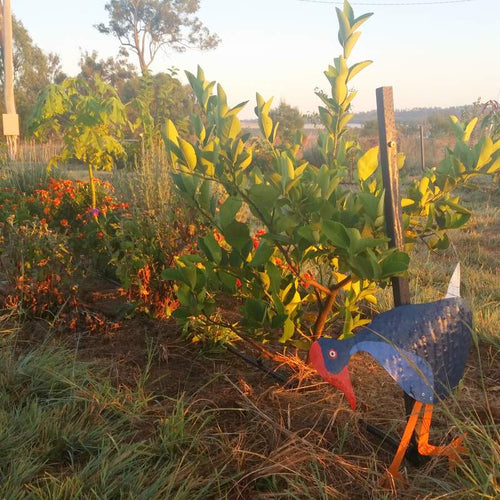Permaculture Principles - Apply self-regulation
In his book Permaculture: Principles and Pathways beyond Sustainability (affiliate link), David Holmgren, one of the founders of permaculture, has written about 12 design principles. The forth principle is "apply self-regulation and accept feedback". In this post I summarise this chapter and give examples from my own experience.
A system without regulation will be out of control
An example is yeast used to brew beer. The yeast produces alcohol as a waste product when it consumes the sugar in the brew, the yeast population increases and it produces more and more waste alcohol, but the yeast die when the brew reaches an alcohol content around 5-6% or when it runs out of sugar to eat. If the yeast were able to self-regulate their population or the waste produced, they would survive and form a stable population.
We must initiate this change from the bottom up
Holmgren suggests that we must self-regulate because he believes that, for various reasons, its not possible for those at the top of our society to impose regulation.
First by changing our own behaviour and then encouraging those around us. Instead of saying "they" should change something (usually meaning the government) we need to recognise that its "we" who must begin to regulate our society staring by taking responsibility for our own actions.
 |
| self-regulation is about taking responsibility |
The system that is getting out of control is the consumer society which thrives on the consumption of resources and the production of waste. This system is unsustainable, but we each must recognise this as individuals and change our own lives first. We must regulate our own actions to reduce consumption and waste, rather than waiting to be regulated by someone or something else.
Use a self-audit in which you consider each of your needs and wants
A self-audit can help you to see how you can change the way you consume. I find it easier to just question each purchase, do I really need this item? If yes, is there any way that I can grow, make, borrow, or use something I already own instead? If no, what is the most ethical purchase decision? Can I buy a local, organically-produced, chemical-free, or fair trade version or alternative?
By analysing the things as I buy them, I start to figure out things that I'd like to try to make or grow, such as making soap or growing more carrots, so that I don't have to buy as much, and so that I become more responsible for my own consumption and waste.
We start to regulate our own use of resources
As we become self-sufficient in various resources, we start to regulate our own use. For example our only water supply is from our rainwater tanks. We could buy water if we got really desperate, but we prefer to frugally use what we get free from the sky. Sometimes this means using very little water if we have dry times, but it is nice to know that we are responsible for regulating our own water consumption, rather than being dictated by a local council (if we were on town water). Taking responsibility for providing your own resources, or at least understanding where they come from, and disposing of your own waste helps you to regulate your own consumption and waste.
The hardest part of self-regulation
I think the hardest part of this principle is other people. Living differently can be isolating and I often get silly questions about why we bother to do things like raising chickens for meat or knitting socks. There is always that pressure to conform and to have the latest widgit, just because everyone else does.
Having a community of like-minded bloggers out there really helps me not feel like I'm a total weirdo. And then, when you have established your new frugal way of life, how do you communicate the advantages to other people without offending them? If this self-regulation is to work, we need lots of selfs to start regulating!
Its a real challenge to respectfully communicate to others that you have reduced your impact on the natural environment and perhaps they should too. Sometimes I have to just cringe and bite my tongue because I can see that certain people are not ready to hear that their lifestyle is not sustainable.
Now, what do you think? Do you self-regulate how you live in order to reduce your consumption and waste? What steps have you taken so far and what are you planning? How do you spread the message to others?
Find out more about Permaculture using these books (affiliate links):
And the other posts in this series:




















Leave a comment